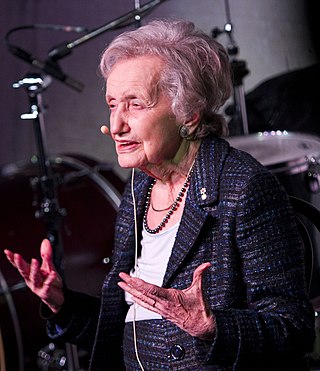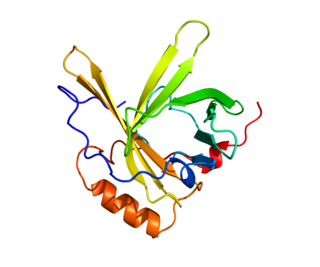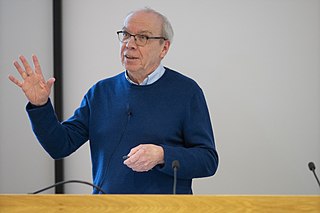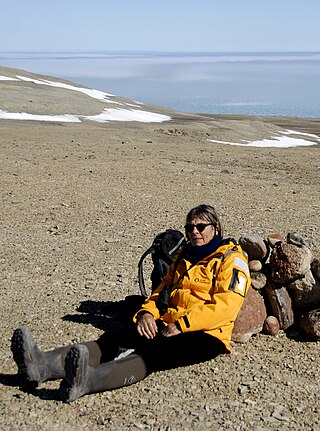
The Salk Institute for Biological Studies is a scientific research institute located in the La Jolla community of San Diego, California, U.S. The independent, non-profit institute was founded in 1960 by Jonas Salk, the developer of the polio vaccine; among the founding consultants were Jacob Bronowski and Francis Crick. Construction of the research facilities began in spring of 1962. The Salk Institute consistently ranks among the top institutions in the US in terms of research output and quality in the life sciences. In 2004, the Times Higher Education Supplement ranked Salk as the world's top biomedicine research institute, and in 2009 it was ranked number one globally by ScienceWatch in the neuroscience and behavior areas.

Brenda Milner is a British-Canadian neuropsychologist who has contributed extensively to the research literature on various topics in the field of clinical neuropsychology. Milner is a professor in the Department of Neurology and Neurosurgery at McGill University and a professor of Psychology at the Montreal Neurological Institute. As of 2020, she holds more than 25 honorary degrees and she continued to work in her nineties. Her current work covers many aspects of neuropsychology including her lifelong interest in the involvement of the temporal lobes in episodic memory. She is sometimes referred to as the founder of neuropsychology and has been essential in its development. She received the Balzan Prize for Cognitive Neuroscience in 2009, and the Kavli Prize in Neuroscience, together with John O'Keefe, and Marcus E. Raichle, in 2014. She turned 100 in July 2018 and at the time was still overseeing the work of researchers.
Ronald Mark Evans is an American Biologist, Professor and Head of the Salk’s Gene Expression Laboratory, and the March of Dimes Chair in Molecular and Developmental Biology at the Salk Institute for Biological Studies in La Jolla, California and a Howard Hughes Medical Institute Investigator. Dr. Ronald M. Evans is known for his original discoveries of nuclear hormone receptors (NR), a special class of transcriptional factor, and the elucidation of their universal mechanism of action, a process that governs how lipophilic hormones and drugs regulate virtually every developmental and metabolic pathway in animals and humans. Nowadays, NRs are among the most widely investigated group of pharmaceutical targets in the world, already yielding benefits in drug discovery for cancer, muscular dystrophies, osteoporosis, type II diabetes, obesity, and cardiovascular diseases. His current research focuses on the function of nuclear hormone signaling and their function in metabolism and cancer.
Samuel Weiss is a Canadian neurobiologist.
Mark Arnold Wainberg, was a Canadian HIV/AIDS researcher and HIV/AIDS activist. He was the Director of the McGill University AIDS Centre at the Montreal Jewish General Hospital and Professor of Medicine and of Microbiology at McGill University. His laboratory primarily studies HIV reverse transcriptase, the molecular basis for drug resistance, and gene therapy. He received a B.Sc. from McGill University in 1966, a Ph.D. from Columbia University in 1972, and did his post-doctoral research at Hadassah Medical School of the Hebrew University.
The Jewish General Hospital, known officially as the Sir Mortimer B. Davis Jewish General Hospital since 1978, is an acute-care teaching hospital in Montreal, Quebec, Canada. The hospital is affiliated with McGill University and has 637 beds, one of the most of a hospital site in Canada.

Apolipoprotein E (Apo-E) is a protein involved in the metabolism of fats in the body of mammals. A subtype is implicated in the Alzheimer's disease and cardiovascular diseases. It is encoded in humans by the gene APOE.

Apolipoprotein D(ApoD) is a protein that in humans is encoded by the APOD gene. Unlike other lipoproteins, which are mainly produced in the liver, apolipoprotein D is mainly produced in the brain and testes. It is a 29 kDa glycoprotein discovered in 1963 as a component of the high-density lipoprotein (HDL) fraction of human plasma. It is the major component of human mammary cyst fluid. The human gene encoding it was cloned in 1986 and the deduced protein sequence revealed that ApoD is a member of the lipocalin family, small hydrophobic molecule transporters. ApoD is 169 amino acids long, including a secretion peptide signal of 20 amino acids. It contains two glycosylation sites (aspargines 45 and 78) and the molecular weight of the mature protein varies from 20 to 32 kDa (see figure 1).
John Quinn Trojanowski was an American academic research neuroscientist specializing in neurodegeneration. He and his partner, Virginia Man-Yee Lee, MBA, Ph.D., are noted for identifying the roles of three proteins in neurodegenerative diseases: tau in Alzheimer's disease, alpha-synuclein in Parkinson's disease, and TDP-43 in Amyotrophic Lateral Sclerosis (ALS) and frontotemporal degeneration.
Rima Rozen is a Canadian geneticist who is a professor at McGill University. Her current research focuses on genetic and nutritional deficiencies in folate metabolism and their impact on complex traits.

Albert Gjedde: is a Danish-Canadian neuroscientist. He is Professor of Neurobiology and Pharmacology at the Faculty of Health Sciences and Center of Neuroscience at the University of Copenhagen. He is currently also Adjunct Professor of Neurology and Neurosurgery in the Department of Neurology, Montreal Neurological Institute, McGill University, Montreal, Quebec, Canada, Adjunct Professor of Radiology and Radiological Science in the Division of Nuclear Medicine, Department of Radiology and Radiological Science, Johns Hopkins University, Baltimore, Maryland, US, Adjunct Professor of Translational Neuropsychiatry Research, University of Southern Denmark, Odense, Denmark, and adjunct professor of psychiatry at Tabriz University of Medical Sciences, Tabriz, East Azerbadjan, Iran.

Michel Goedert FRS, FMedSci is a Luxembourgish-British neuroscientist and former Head of Neurobiology, at the MRC Laboratory of Molecular Biology.

Margaret Lock is a distinguished Canadian medical anthropologist, known for her publications in connection with an anthropology of the body and embodiment, comparative epistemologies of medical knowledge and practice, and the global impact of emerging biomedical technologies.
Jean-Claude Tardif is the Director of the Research Center at the Montreal Heart Institute and Professor of Medicine at the University of Montreal. He received his medical degree (MD) in 1987 from the University of Montreal and specialized in cardiology and research in Montreal and Boston until 1994. Dr. Tardif holds the Canada Research Chair in personalized medicine and the University of Montreal endowed research chair in atherosclerosis. He is also the Scientific Director of the Montreal Health Innovations Coordinating Center (MHICC).

Alim Louis Benabid is a French-Algerian emeritus professor, neurosurgeon and member of the French Academy of Sciences, who has had a global impact in the development of deep brain stimulation (DBS) for Parkinson's disease and other movement disorders. He became emeritus professor of biophysics at the Joseph Fourier University in Grenoble in September 2007, and chairman of the board of the Edmond J. Safra Biomedical Research Center in 2009 at Clinatec, a multidisciplinary institute he co-founded in Grenoble that applies nanotechnologies to neurosciences.
Stephen F. Heinemann (1939–2014) was a professor of neuroscience at the Salk Institute. He was an early researcher in the field of molecular neuroscience, contributing to the current knowledge of how nerves communicate with each other, and the role of neurotransmitters. Stephen Heinemann died August 6, 2014, of kidney failure.
Donald L. Price is an American neuropathologist and professor at the Johns Hopkins School of Medicine born in Stamford, Connecticut. His research aims to understand the molecular basis of neurodegenerative diseases, particularly Alzheimer’s disease. Price has received a number of awards for his work and served as the President of both the American Association of Neuropathologists and the Society for Neuroscience.

Bradlee L. Heckmann is an American biologist and pharmacologist who is the scientific co-founder and chief scientific officer of Asha Therapeutics, a biopharmaceutical company exploring novel therapeutics for neurological and oncological diseases. Heckmann holds academic appointments as a neuroimmunologist at the Byrd Alzheimer's Center and USF Health Neuroscience Institute and is assistant professor in molecular medicine at the USF Health Morsani College of Medicine. Heckmann's research has been focused on understanding the regulation of inflammatory and metabolic processes in the central nervous system, with particular emphasis on neurodegenerative diseases including Alzheimer's Disease and the role of the autophagy machinery in this setting.
Dennis J. Selkoe is an American physician (neurologist) known for his research into the molecular basis of Alzheimer's disease. In 1985 he became Co-Director of the Center for Neurological Diseases and from 1990, Vincent and Stella Coates Professor of Neurological Diseases at Harvard Medical School. He is also a Fellow of the AAAS and a member of the National Academy of Medicine.
Isabelle Aubert is a Canadian neuroscientist with expertise in developing regenerative therapies for neurodegenerative disorders. She is a senior scientist at Sunnybrook Research Institute, and is a professor in laboratory medicine and pathobiology at the University of Toronto. In 2019, Aubert was appointed as a Canada Research Chair in Brain Repair and Regeneration.









